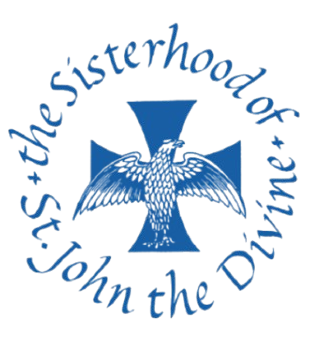By the Rev Joanne Davies, Oblate, SSJD.

Next week in our faith year we will enter a season of deep quiet and reflection. A time of beginning and waiting. Today, like all endings, there is an arising of new illumination and new discoveries. Today, we are leaving a time of learning after Pentecost. We also see changes in our world, even shock, midst the cycle of human hope, mixed with human greed and ego, with an accompanying expectation of what prosperity and abundance means. Today in faith we are reminded, because humanity needs to be reminded over and over, again and again, that the life in the kin-dom we are called to is not about personal greatness or power or to be rich with money. It is not the promise of politics that is bluster. The life Christ calls us into together is about joy, and enough food, living in good protective shelter, all with love for the person beside us, love for the person we do not know, as well as love for the person we do not like.
This is not love given from privilege. Christ’s life, a life we are to live, is about humility. Christ is enthroned in glory but at the very same moment (the very same moment) Christ is hidden beneath the rags and in the flesh of those in need on our earth.
…………
Pontius Pilate wonders about this kingship question.
“Are you the King of the Jews?”
Jesus answered, “My kingdom does not belong to this world. If my kingdom belonged to this world, my followers would be fighting to keep me from being handed over…
Pilate asked him, “So you are a king?” Jesus answered, “You say that I am a king. For this I was born, and for this I came into the world, to testify to the truth. Everyone who belongs to the truth listens to my voice.”
Belonging. Oh yes. But not to see power from the place of belonging.
It is worth understanding the history of today’s celebration and what the message was. Today’s festival didn’t emerge until the twentieth century, and at first it had nothing to do with the end of the church year at all.
In the desire to listen to Christ and live the truth, Pope Pius XI established Christ the King Sunday in 1925 to counter forces of the modern world: secularism in the west, the rise of communism in Russia and fascism in Italy and Spain, harbingers of the Nazism soon to seize Germany. Pope Pius wanted to illuminate the rule of Christ against totalitarian claims of these ideologies.
Initially the feast was at the end of October the same day as Reformation Sunday for Lutherans. But in the reform of the Roman liturgy after the Second Vatican Council, the festival moved to the last Sunday of the church year. No longer allowing for political misinformation (something to note and recognize) in calling the day “Counter-Reformation” but celebrating a day for all denominations to light up the truth of living into Christ’s life and kin-dom. This also proved, in a spirit led way, to be more than an ecumenical gesture.
Placed at the end of the church year, with its traditional eschatological emphasis, the celebration now proclaimed Christ’s kin-dom as “the goal of human history, the focal point of the desires of history and civilization, the center of humankind, the joy of all hearts, and the fulfillment of all aspirations.” Today’s celebration is a positive reconstruction of the festival’s first expression in 1925 – one that is against kingship embodied political ideologies. A profound concern of our present world. The Gospel readings in the three year lectionary given to the day present Christ confronting the rulers of this world, and reigning from the cross.
This is a call for us to fully realise the truth of our lives in Christ, in our giving response to the Good News of Jesus. To discard a political stance and live into a reign of love. With humility.
Christ loves, frees us with forgiveness and our surrender to this great love will free us from holding on to thinking we have the power to shape life.The other day I read a blog, by Grace Ji-Sun Kim. She offered this: One day our professor, a Jesuit priest, asked his class of about 15 students, “When we pray the Lord’s Prayer, and we say, ‘Let thy kingdom come’—what does that really mean?” Many of the students offered answers. He said “no” to them all.
When no one in the class was able to answer it correctly, he said, “I will tell you what it means when we pray, ‘Let thy kingdom come.’ What we really mean is, let my kingdom go. Let my kingdom go. ”
We spend so much time building our own kingdom, wrapped up and closed off in pursuing power and status ….We need to surrender our self-made kingdoms to be part of God’s kin-dom… one rooted in love, justice, and community.
Jesus is King… with us, within us, calling us to die with him, to come to a God-lit life together and most of all to learn to “let our kingdoms go.” Let thy kingdom come means we let our kingdoms go and begin to live with freedom, with each other and belong to the kin-dom that is of God.
We celebrate today. Every year we must remind ourselves, until the reign of Christ becomes real to this world…Come and let us open our hearts anew and listen.
Even at risk to our entitlements. Especially so.
May we let them go.
Your kingdom come. Your will be done.
Amen
